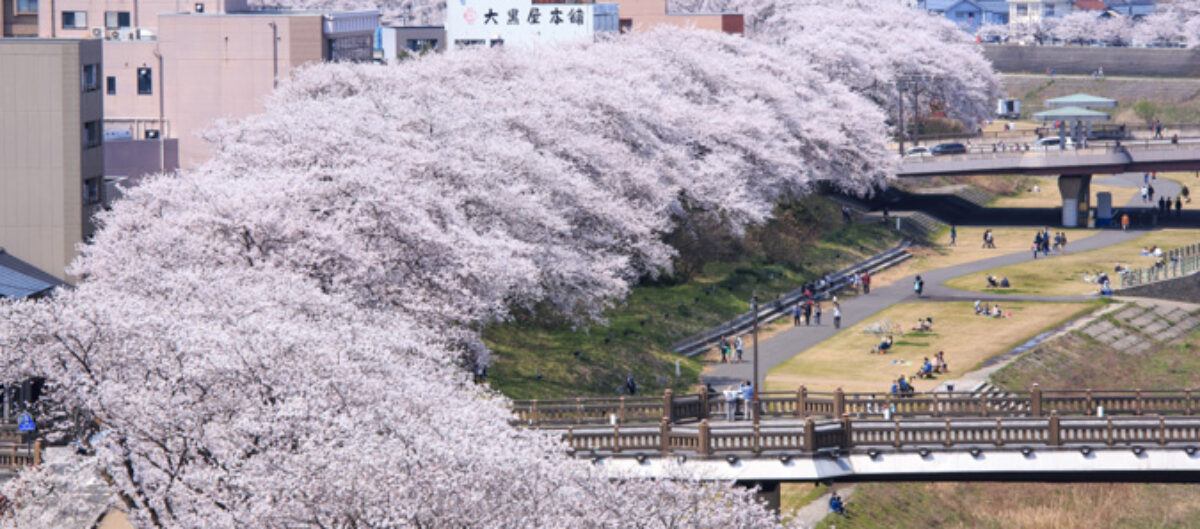
February/19/2022
Hashimoto Sanai(橋本左内) (1834–1859) was born in Fukui, Japan, and in his life he was a doctor, a samurai (Japanese warrior), and a politician. He was one of the contributors to the creation of democracy in Japan in the 19th century. His reputation in Japan is high, and he’s especially admired in his home city of Fukui. His teachings and influence are deeply engraved in the DNA of the people there.

Sanai was the son of a doctor. When he was seven and eight he learned Chinese literature, prose and poetry writing, and calligraphy, and at 12 he learned swordsmanship and Chinese medicine. He was a precocious and gentle child. More than anything, he was a diligent student.
At 16 Sanai got into Tekijuku, where he focused on Western medicine and Western studies. (Tekijuku was the top private school of Western studies in Japan.) While at the school he developed a custom that truly revealed his character. Every night he went out alone, and his schoolmates gossiped about this and said that he was probably engaging in nightlife. However, he was going to a place where there were people living in poverty, and he was giving them care.
At the age of 19 Sanai went back to Fukui and became a doctor for the Fukui domain. However, at 22 he quit medicine and began working as an aide to Matsudaira Shungaku, who was the lord of the domain.

At that time Japan was in a turbulent and critical period. It was about to end its national isolation and open itself to the world.
Sanai knew a few foreign languages and was able to get information from around the world. Because of that he understood the world situation. He thought that Japan was facing the kind of crisis that came only once every several centuries. He perceived that Western countries were trying to colonialize Japan. It was to help save Japan that he quit medicine and became an aide to the lord of the domain. He did this to help make Japan strong.
At 23 Sanai became the principal of Meidokan (明道館), a school in the Fukui domain built by Matsudaira Shungaku in 1855. Shungaku intended for the school to produce great figures who could serve the Fukui domain. Sanai created departments for the study of foreign books and for mathematics there, and he taught subjects that were appropriate to the times. He taught students Japan-related subjects before teaching them Western learning. This was because he didn’t want them to lose their pride in being Japanese. He thought that Japanese people should learn science and technology from the West and moral and spiritual matters from Japan.

Meidokan was the predecessor of Fujishima High School (藤島高校), which is now one of the most prestigious schools in Fukui.
Sanai thought that Japan should open itself to the world and begin trading with other countries. He also believed that Japan should abolish the class system and recruit excellent people from around the country in order to make the country strong. He claimed that the shogunate government should listen to the opinions of the imperial court when it came to diplomatic issues.
A lot of leaders in Japan at that time were influenced by Sanai’s acute insights and broad perspectives. However, he was given the death sentence at the age of 26 as a result of a conflict that he’d had with the country’s most powerful political mogul.
Sanai is famous for his Treatise on Enlightenment (啓発録), which includes oaths that he’d made to himself at the age of 15. He presented five of these vows and elaborated on them briefly.

These are the five vows:
- Stop being immature
- Raise your spirits
- Have high aspirations
- Study hard
- Choose your friends wisely
In Sanai’s time people were considered adults when they turned 15, so he set five goals for becoming an ideal adult. This treatise was published as a book, and a lot of Japanese people still read it.
Loyalty and filial piety, two Confucian ethical ideals, were very important to Sanai. He thought that a person should be loyal to his master and devoted to his parents. His aspiration was to be like a sage or a hero, which included working for his master and acting in a way that made his parents proud of him.
Why is Sanai so popular in Fukui?
It’s because his aspiration was pure and great, and he pursued it at the risk of his life.

Sanai’s birthplace is about a 20-minute walk from JR Fukui Station. Every April 11th people in Fukui celebrate his birthday there.


Sanai Park (左内公園) is about a 15-minute walk from JR Fukui station, and the park contains both a big statue of Sanai and his grave. Every October 7th, the anniversary of his death, there’s a festival in front of the grave.
Sanai passed away more than 150 years ago, but he still teaches the people of Fukui a lot of things.
(References)
「福井県の歴史散歩」(編:福井県の歴史散歩編集委員会)(山川出版社)
「Treatise on Enlightenment」(Hashimoto Sanai) (Daisuke Konno)(錦正社)
「きえないあかり 親子で学ぶ橋本左内先生」(春嶽公と左内先生の春山づくり委員会、福井市春山公民館)
「われらのほこり 橋本左内先生」(編集:うらがまちづくり春山地区委員会 福井市春山公民館)(大和印刷所)
「時代を先取りした男 橋本左内」(編:福井テレビ取材班、監修:加来耕三)(扶桑社)
「永遠の青年 景岳 橋本左内先生」(橋本左内先生奉賛会)
「橋本左内の科学思想」(ふくい藤田美術館)
「幕末の先覚者 橋本左内」(大津寄章三)(明成社)
「啓発録」(橋本左内)(現代語訳:夏川賀央)(致知出版社)
「橋本左内」(山口宗之)(吉川弘文館)
「コミック版 日本の歴史54 橋本左内」(企画・構成・監修:加来耕三、原作:東山成江、作画:中島健志)(ポプラ社)
「つづけ!!橋本左内先生に!」(福井市教育委員会、橋本左内先生冊子作成編集委員会)
「橋本左内って知ってるかい?」(編集・執筆:角鹿尚計)(福井市立郷土歴史博物館)
「Hashimoto Sanai: A Japanese martyr」(Welden, Frederick) The Journal of the Rutgers University Library, 4 (December, 1940), pp. 15–21
